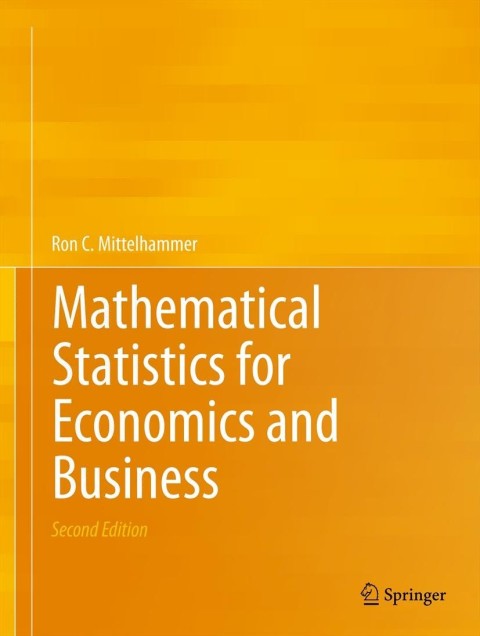An investor has ($ 10,000) which she intends to invest in a portfolio of three stocks that
Question:
An investor has \(\$ 10,000\) which she intends to invest in a portfolio of three stocks that she feels are good investment prospects. During the investor's planning horizon, the weekly closing prices of the stocks can be viewed as the outcome of a trivariate normal random variable with
\(\mathrm{E}(\mathbf{X})=\left[\begin{array}{l}27 \\ 10 \\ 18\end{array}ight]\) and \(\boldsymbol{C} \boldsymbol{\operatorname { v o v }}(\mathbf{X})=\left[\begin{array}{rrr}9 & 2 & 1 \\ 2 & 1 & -1 \\ 1 & -1 & 4\end{array}ight]\).
The current price of the stocks are \(\$ 23, \$ 11\), and \(\$ 19\), respectively.
(a) If she invests her \(\$ 10,000\) equally among the three stocks, what is the expected value of her portfolio? What is the variance of the portfolio value?
(b) What is the probability density function of the portfolio value? What is the probability that the closing value of her portfolio for a given week will exceed \(\$ 11,000\) ?
(c) What is the probability density function of the value of stock 1 ? If she invests the \(\$ 10,000\) entirely in stock 1 , what is the probability that the closing value of her portfolio will exceed \(\$ 11,000\) ?
(d) What is the conditional density function of the value of stock 1 given that stock 3 has a value of \(\$ 17\) ? If she invests the \(\$ 10,000\) entirely in stock 1 , what is the conditional probability that the closing value of her portfolio will exceed \(\$ 11,000\), given that stock 3 has a value of \(\$ 17\) ?
(e) If she divides her \(\$ 10,000\) equally among stocks 1 and 2 , what is the conditional probability that this portfolio will have a closing value exceeding \(\$ 11,000\) given that stock 3 has a value of \(\$ 17\) ?
Step by Step Answer:

Mathematical Statistics For Economics And Business
ISBN: 9781461450221
2nd Edition
Authors: Ron C.Mittelhammer





